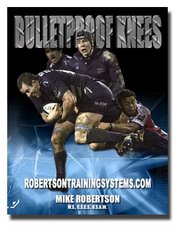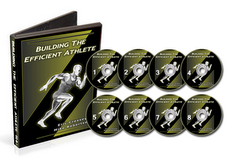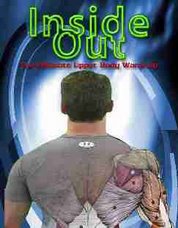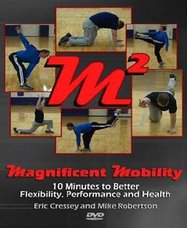Dear Mike,
This writing is a request for assistance. I am at fork in the
road on my career path. I'm 22 years old and will graduate
college in December. For the last few years I have been
excitedly learning everything I can about weight training and
nutrition. I chose to pursue mainly nutrition in my
undergraduate studies at Central Michigan University, as a
Dietetics major, but as I near graduation I'm unsure of
whether I want to pursue further education in sports nutrition
or go the route of strength training and become a strength and
conditioning (S & C) coach. I'm inspired by the thought of
someday interning and working with coaches and like-minded
people like you. All I seem to think or read about these days
is related to weightlifting, nutrition, athletics, athletic
development, body composition, and so forth. These are my
passions. What I'm not clear about is how to discern my next
best steps-specifically related to formal education (even
though I realize most education is outside of the classroom).
I'm hoping you might be willing to offer some insight or
suggestions regarding:
1. How I might clarify my passion and/or next steps? (I
realize that it doesn't necessarily have to be strength
training OR nutrition, but having a narrower goal would help
in choosing where to pursue a masters degree, and with what
focus.)
2. What is the best formal education path once I determine
which route to take? For example, if I choose the S & C route,
would a masters in Kinesiology with a concentration in
exercise science or biomechanics (or something else) be the
best route? If I choose further nutrition education, what
degree(s) would put me in the best position to give nutrition
guidance in an athletic type environment? (I definitely don't
want to be a clinical dietitian.)
3. Are there any masters degree programs or other educational
or training opportunities or internships you especially recommend?
I greatly appreciate any guidance, tips, or helpful resources
you might be willing to offer or point me toward. If you
prefer to talk by phone let me know.
Thank you!
Shane -
Thanks for contacting me - I think you've put yourself in a great position
to be successful down the line.
Firstly, PLEASE make sure to complete your dietetics degree and get your RD.
We need more athletic-minded RD's in the field! Beyond giving yourself an
edge over the competition, you'll be better able to help the
athletes/clients you work with down the line.
As far as finding your passion, it sounds as though you've already done it!
Working with athletes is the greatest job in the world. After you've
completed your dietetic degree and test, look into Masters programs in the
fields of physiology, biomechanics or perhaps a specialized program in
sports nutrition. Make sure to get time in both the lab and practical (e.g.
athletic) settings. Being able to read and comprehend research is a
critical part of any Masters program, but you need to split that time
between the theoretical stuff and the "in-the-trenches" stuff as well.
As far as programs go, I can say without a doubt that UCONN has an excellent
program - I've studied under and worked with many of the staff there, and
they are top-notch. My old alma-mater, Ball State, still has a great lab
but has shifted it's emphasis from strength and power which are my passions.
Finally, the lab at Memphis was very solid a very years ago but I'm not sure
where it's at right now. Those would all be great places to start.
I hope this helps and good luck with your future!
Best
Mike







